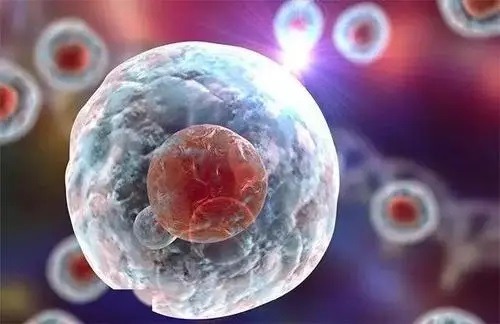- Turkey tail(Trametes versicolor) mushroom has important effects in anti-cancers, mainly reflected in the following aspects:
Enhancing immune anticancer: Turkey tail mushroom is rich in polysaccharides, such as components such as PSK (polysaccharide K) and PSP (polysaccharide peptide). These polysaccharides can activate the human immune system and stimulate the activity and proliferation of immune cells such as T cells, B cells, macrophages, and natural killer cells (NK cells). For example, after macrophages are activated, their phagocytic ability is enhanced, and they can more effectively recognize and eliminate tumor cells. At the same time, the immune response ability of T cells is improved, and they can more accurately recognize tumor-associated antigens and launch attacks, thereby enhancing the body’s immune surveillance and killing effect on cancer cells and inhibiting the occurrence, development, and metastasis of tumors.
Inhibiting tumor cell growth: Studies have found that extracts of Turkey tail mushrooms can directly interfere with the biological behavior of tumor cells through multiple pathways. It can affect the cell cycle of tumor cells and make cancer cells stagnate at a specific cycle stage, such as the G0/G1 phase or G2/M phase, thereby inhibiting the proliferation of cancer cells. In addition, Turkey tail mushrooms can also induce tumor cell apoptosis. Activating the apoptotic signaling pathway in cells promotes programmed cell death of cancer cells, reduces the number of tumor cells, and achieves anticancer effects.
Reducing side effects of radiotherapy and chemotherapy: During cancer treatment, radiotherapy and chemotherapy often bring many adverse reactions to patients, such as bone marrow suppression, gastrointestinal discomfort, and decreased immune function. Turkey tail mushroom has a certain protective effect. It can promote the proliferation and differentiation of bone marrow hematopoietic stem cells, relieve bone marrow suppression, and increase the number of peripheral blood cells. Regarding the gastrointestinal tract, Turkey tail mushroom helps maintain the integrity of the gastrointestinal mucosa and reduce symptoms such as nausea, vomiting, and diarrhea. At the same time, because it can enhance the body’s immunity, it can offset the inhibitory effect of radiotherapy and chemotherapy on the immune system to a certain extent, help patients better tolerate treatment, improve the quality of life, and may enhance the overall therapeutic effect of radiotherapy and chemotherapy.
Turkey tail mushroom has many positive effects in the anticancer field. However, when applying it, professional doctors’ advice should be followed and it should be used reasonably in combination with specific cancer types and individual patient conditions.
- What is the specific mechanism of action of the anticancer components PSK and PSP of Turkey tail mushroom?
The specific mechanism of action of the anticancer components PSK (polysaccharide K) and PSP (polysaccharide peptide) is as follows:
In terms of immune regulation
Activating immune cells: PSK and PSP can stimulate the activity of immune cells such as macrophages, T cells, B cells, and natural killer cells (NK cells). They bind to receptors on the surface of immune cells and trigger a series of intracellular signal transduction pathways, promoting the proliferation and differentiation of immune cells. For example, PSK can increase the phagocytic ability of macrophages, enabling them to more effectively take up and process tumor-associated antigens, and then activate T cell-mediated immune responses.
- What is the specific mechanism of action of PSK and PSP, the anti-cancer ingredients of Turkey tail mushroom?
The specific action mechanisms of the anticancer components PSK (polysaccharide K) and PSP (polysaccharide peptide) of Turkey tail mushroom are as follows:
In terms of immune regulation
 Activating immune cells: PSK and PSP can stimulate the activity of immune cells such as macrophages, T cells, B cells, and natural killer cells (NK cells). They bind to receptors on the surface of immune cells and trigger a series of intracellular signal transduction pathways, promoting the proliferation and differentiation of immune cells. For example, PSK can increase the phagocytic ability of macrophages, enabling them to more effectively take up and process tumor-associated antigens, and then activate T cell-mediated immune responses.
Activating immune cells: PSK and PSP can stimulate the activity of immune cells such as macrophages, T cells, B cells, and natural killer cells (NK cells). They bind to receptors on the surface of immune cells and trigger a series of intracellular signal transduction pathways, promoting the proliferation and differentiation of immune cells. For example, PSK can increase the phagocytic ability of macrophages, enabling them to more effectively take up and process tumor-associated antigens, and then activate T cell-mediated immune responses.
Enhancing cytokine secretion: These two components can promote immune cells to secrete various cytokines such as interleukin (IL)-2, IL-6, interferon (IFN)-γ, etc. These cytokines play a key regulatory role in the immune system and can enhance the interaction and synergistic effect between immune cells, forming an immune microenvironment conducive to antitumor. For example, IL-2 can promote the proliferation and activation of T cells, and IFN-γ has multiple functions such as antiviral, antitumor, and immune regulation, and can enhance the antitumor activity of macrophages.
In terms of directly inhibiting tumor cells
Interfering with the cell cycle: PSK and PSP can affect the cell cycle process of tumor cells. By regulating the activity of cyclin-dependent kinases (CDK) and cyclins, they can make tumor cells stagnate at specific stages of the cell cycle, such as G0/G1 phase or G2/M phase, thereby inhibiting the proliferation of tumor cells. For example, PSP may prevent tumor cells from transitioning from the G1 phase to the S phase by inhibiting the expression of cyclin D1 and CDK4 and then preventing DNA replication and cell division of tumor cells.
Inducing apoptosis: These components can activate the apoptotic signaling pathway in tumor cells. They may change the balance of apoptosis-related proteins in cells by up-regulating the expression of pro-apoptotic proteins (such as Bax, Bad, etc.) and down-regulating the expression of anti-apoptotic proteins (such as Bcl-2, Bcl-xL, etc.), prompting mitochondria to release cytochrome C and activate the caspase cascade reaction, ultimately leading to programmed cell death of tumor cells. In addition, PSK and PSP may also induce tumor cell apoptosis by affecting the membrane integrity and mitochondrial function of tumor cells.
- Clinical trial data on the anticancer components PSK and PSP of Turkey tail mushroom.
Here are some examples of clinical trial data on the anticancer components PSK and PSP of Turkey tail mushroom:
Gastric cancer aspect: In some clinical trials for gastric cancer patients, the combined use of PSK and traditional chemotherapy drugs such as 5-fluorouracil (5-FU) shows that the survival period of patients is extended to a certain extent. Some studies have reported that the median survival period of patients receiving combined treatment is several months longer than that of the chemotherapy-alone group, and the quality of life has also been improved in some aspects. For example, the incidence of chemotherapy adverse reactions such as nausea and vomiting has been reduced.
Lung cancer aspect: For patients with non-small cell lung cancer, some clinical trials have explored the effect of the combined application of PSP and radiotherapy or chemotherapy. In one study, the experimental group of patients with PSP combined with chemotherapy was superior to the chemotherapy alone group in the degree of tumor shrinkage, and the objective response rate was improved. At the same time, the immune function indicators of patients such as the CD4+/CD8+ T cell ratio remained relatively stable or improved during the treatment process, suggesting that PSP may cooperate in anticancer through enhancing immune function.
Colorectal cancer aspect: In clinical trials of colorectal cancer, PSK adjuvant therapy shows certain advantages. Data shows that the postoperative recurrence rate of patients using PSK combined with surgery and chemotherapy is lower than that of the surgery and chemotherapy alone group within a certain period of time, reduced by about 10%-20%, and the disease-free survival period of patients is also extended to varying degrees. This may be related to the effects of PSK in regulating the body’s immunity and inhibiting tumor cell metastasis.
chemotherapy alone group within a certain period of time, reduced by about 10%-20%, and the disease-free survival period of patients is also extended to varying degrees. This may be related to the effects of PSK in regulating the body’s immunity and inhibiting tumor cell metastasis.
- Have the clinical trial data of the anticancer components PSK and PSP of Turkey tail mushroom been peer-reviewed?
Many clinical trial data on the anticancer components PSK and PSP of Turkey tail mushroom have undergone peer review. Relevant studies published in internationally renowned medical and oncology academic journals, such as articles in journals such as “The Journal of Clinical Oncology” and “Cancer Research”, have all undergone a strict peer review process during publication. These review experts will conduct a comprehensive and detailed assessment of aspects such as the rationality of the research design, the scientific nature of data collection and analysis methods, the reliability of results, and the appropriateness of conclusions. For example, in some clinical trial studies on the combined treatment of PSK and chemotherapy for gastric cancer, after being submitted to professional journals, peer review experts will review whether the patient inclusion criteria are clear, whether the randomization is reasonable, whether the dose and treatment course settings during the treatment process comply with the norms, and whether the statistical analysis of data such as survival period and tumor remission rate is accurate. Only after passing the peer review can the research results be published in these high-quality journals, thus providing a basis with certain credibility and academic value for the research on the anticancer components of Turkey tail mushroom, and also providing important references and lessons for subsequent research and clinical applications.

Leave A Comment